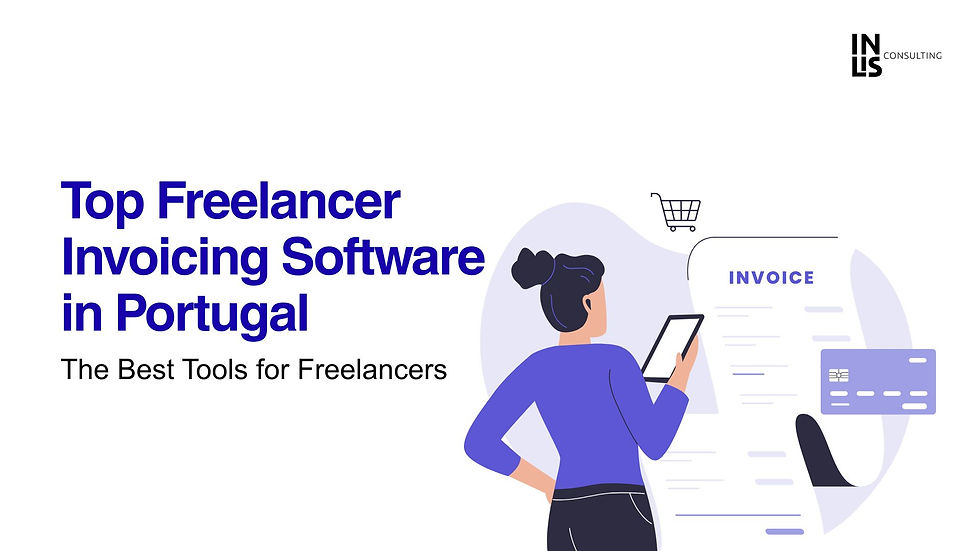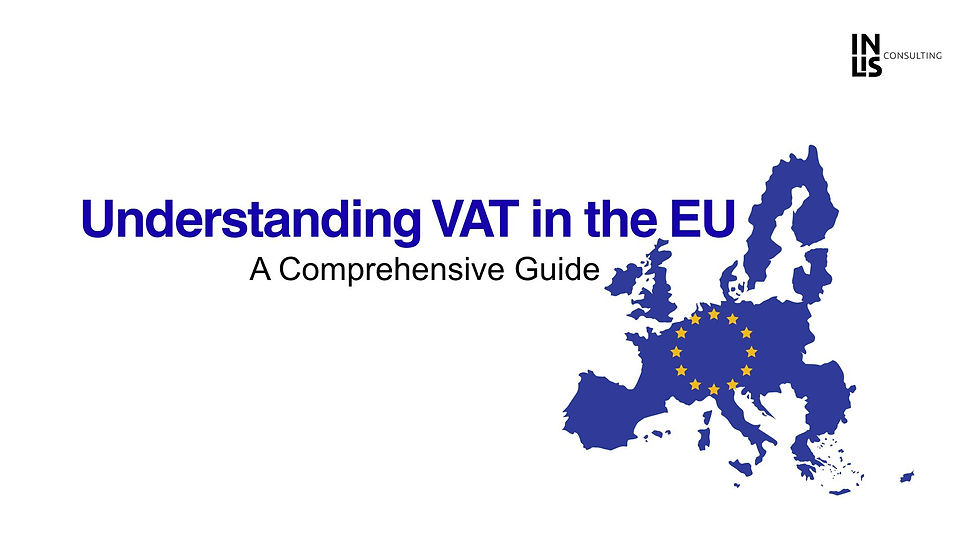Customizable Accounting: Secure, Compliant Solutions for Modern Businesses
- INLIS Consulting
- Jul 23
- 6 min read
In today’s agile business world, a one-size-fits-all accounting package no longer cuts it. Companies need platforms that bend to their unique workflows, not the other way around. Experts note that being able to tailor your accounting software is “not just a luxury; it’s a necessity

Custom systems let each firm define its own data fields, approval rules, and reports, ensuring the software collects and tracks the data that matters to them. By contrast, forcing unique processes into rigid, off-the-shelf tools can be a costly mistake.
Key benefits of building flexibility into your accounting system include:
Operational Alignment: The system reflects your unique processes, policies, and compliance needs. For example, you can require extra approvals or specific data only under certain conditions.
Real-Time Agility: Users can adjust fields and workflows on the fly as the business evolves, instead of waiting months for developers.
Cost Efficiency: Cutting out lengthy developer projects and external consultants saves money in the long run.
Better User Experience: Tailored features and an intuitive interface mean higher staff satisfaction and fewer errors.
In practice, this means finance teams gain immediate control. For instance, modern systems allow you to add a custom field to an invoice form or make certain information mandatory only if a purchase exceeds a set amount – all with just a few clicks.
Approval workflows can be reshaped in real time, from simple one-step sign-offs to complex, multi-layered chains, matching exactly how your organization operates. This “self-service” approach means you don’t need to hire outside programmers; changes happen instantly at the user level.
Tailored Solutions for Every Scale
Whether you’re a scrappy startup, a growing SME, or a global enterprise, customization pays dividends. For a tech startup, a cloud-based accounting tool can be launched with just the features needed, and then expanded as the business grows.
As Acropolium observes, custom software lets your system “scale smoothly… [expanding] its functions to handle increased volumes” without missing a beat. For example, a Lisbon e‑commerce startup might begin with a simple invoicing module, then later add multi-currency support and detailed sales analytics by tweaking the same platform – no rip-and-replace required.
Growing SMEs benefit similarly. Imagine a local manufacturer with several product lines: it can configure separate cost centers or inventory fields for each line, and even automate complex VAT rules in the accounting software. Rather than juggling spreadsheets or manual workarounds, these businesses embed intelligence into the software.
Every customized module – from inventory tracking to project billing – fits their workflow. As one industry guide notes, bespoke accounting tools “address specific business needs, streamlining financial operations, improving accuracy, and enhancing overall efficiency”
Large and multi-national companies have even more at stake. Such organizations juggle multiple currencies, diverse tax regimes, and consolidated reporting standards. A custom accounting platform can handle all this in one place: automating currency conversions, generating country-specific compliance reports, and ensuring every subsidiary’s data rolls up correctly.
In effect, the software becomes a programmable framework rather than a fixed product. This level of flexibility avoids the painful delays of legacy ERPs, as one analysis found, traditional customization projects often “introduce significant delays, inflating costs, and stifling agility” and instead keeps global operations smooth and connected.
Compliance and Data Protection in EU Accounting
Europe, powerful customization must go hand-in-hand with rigorous compliance and data protection. The EU’s General Data Protection Regulation (GDPR) is often called “the toughest privacy and security law in the world.”
It applies to any company handling EU citizens’ data, and it carries stiff penalties – up to €20 million or 4% of annual turnover. In short, an accounting system must be built to protect sensitive personal and financial data from day one.
Under GDPR, organizations must implement “appropriate technical and organisational measures” for data security. In practice, that means encryption, strict access controls, and clear audit trails. Industry experts emphasize encryption: modern systems operate with role-based access control and data encryption as “imperative” to protect sensitive records.
Cloud accounting providers now routinely scan for vulnerabilities and enforce “strong security systems and data protection policies” to satisfy GDPR. The European Data Protection Board warns that failing to secure data can have dire consequences – companies risk degrading their reputation, losing customers’ trust, and facing “large sums” in recovery costs after a breach.
Beyond GDPR, new EU rules are in play. For example, the Digital Operational Resilience Act (DORA), effective January 2025, requires financial firms (banks, insurers, payment services, etc.) to build robust ICT resilience. They must be able to withstand cyberattacks and IT failures, with advanced monitoring, incident response plans, and encrypted backups. In other words, regulators expect your accounting system to have enterprise-grade cybersecurity by design.
Key compliance features in a modern accounting system include:
Data Encryption & Access Controls: All sensitive data is encrypted at rest and in transit. Granular user permissions and multi-factor authentication ensure that only authorized staff see financial data.
Audit Trails & Monitoring: Every transaction and configuration change is logged. Detailed audit logs help demonstrate GDPR compliance and make internal reviews straightforward.
Automated Regulatory Checks: Built-in tools automatically enforce rules like VAT rates, withholding taxes, or reporting deadlines. These guardrails mean compliance is part of daily workflows, not a separate chore.
Continuous Updates: We stay on top of new EU requirements (from PSD2 to DORA and beyond) so your system evolves alongside the law. Software patches and compliance upgrades are delivered proactively.
By contrast, ignoring these safeguards can be disastrous. According to GDPR authorities, a lack of security not only harms customers but also “stops your activity” as regulators intervene. The math is simple: strong data protection and compliance are non-negotiable components of any financial system.
INLIS Consulting: Secure, Flexible Accounting Solutions
At INLIS Consulting, we believe your accounting software should empower your business, not constrain it. We work closely with each client to implement solutions that are both highly customizable and rock-solid in security.
Our approach includes:
Custom Workflow Configuration: We design every approval flow and data field around your process.
Need a special line item for a Portuguese tax code?
Or a multi-level invoice approval?
We add it. Clients often find our tools so intuitive that non-technical staff can redefine forms and dashboards themselves, on the spot.
Built-In Compliance: Every system we set up is GDPR-by-design. Personal data is minimized and encrypted, consent and processing records are tracked, and data deletion policies are enforced.
We also build in features to meet EU financial rules – for example, multi-currency transactions, local tax reporting, or DORA readiness checks. This means compliance is automatic, not an afterthought.
Robust Security: We partner with leading cloud providers and run continuous vulnerability scans. All connections and storage are secured with enterprise-grade encryption.
Maintaining “strong security systems and data protection policies” is essential under GDPR, and we take that to heart. Every piece of financial data is treated as highly confidential, with strict user-permission controls and frequent security audits.
Scalability & Support: Your business will grow, and your accounting system must grow with it. Thanks to the modular design we use, adding new entities, users, or functionality is easy. For instance, one client recently needed to onboard a new foreign subsidiary; we simply configured a new branch in their system and mapped the local chart of accounts – all without downtime.
And because the core platform is the same, all data remains centralized and secure. A properly tailored solution will “scale along with your business,” a philosophy we embrace.
Conclusion
The era of rigid, generic accounting software is over. Today’s businesses – from nimble startups to global corporations – need flexible systems they can adapt themselves, backed by ironclad security and compliance.
Customizable accounting platforms deliver this agility and control. They let companies “collect and track the data that matters,” streamline workflows, and pivot instantly when strategies or regulations change.
At the same time, they embed privacy and security safeguards at every layer, protecting against breaches and ensuring adherence to GDPR, DORA, and other EU laws.
INLIS Consulting is committed to helping clients navigate this new landscape. We provide accounting solutions that are both flexible and by-design secure. Our expertise ensures you get the tailor-made features your business needs, without compromising on data protection or compliance. In short, we empower you with accounting systems you can trust – so you can focus on growth, not bureaucracy.




Comments